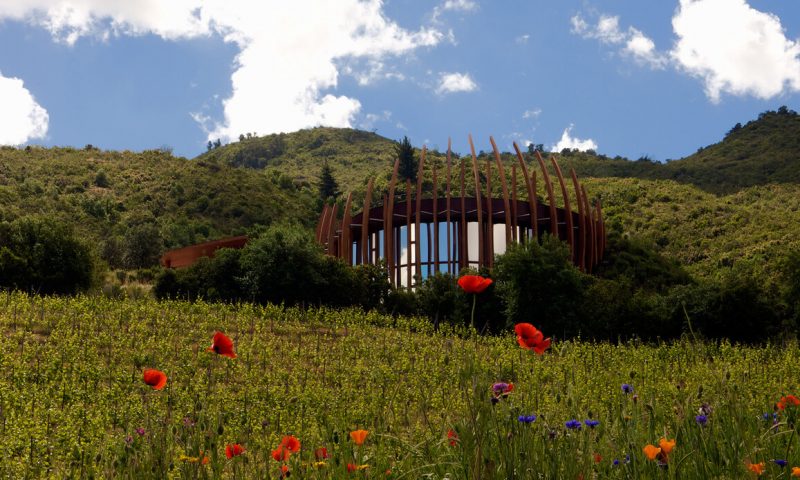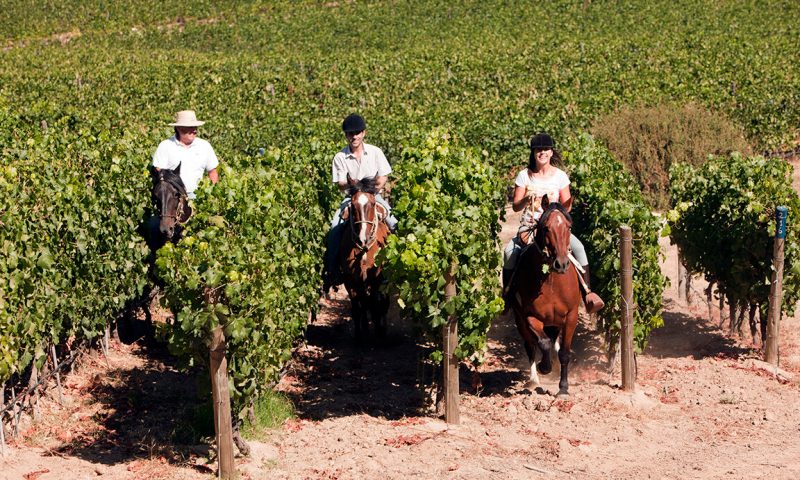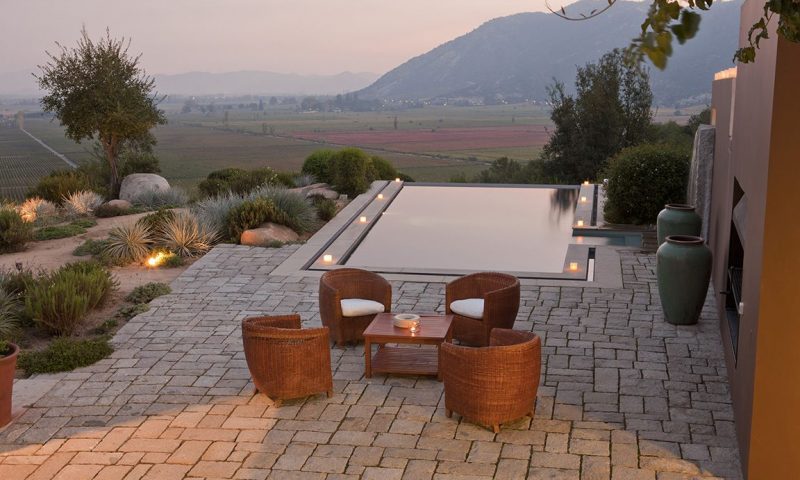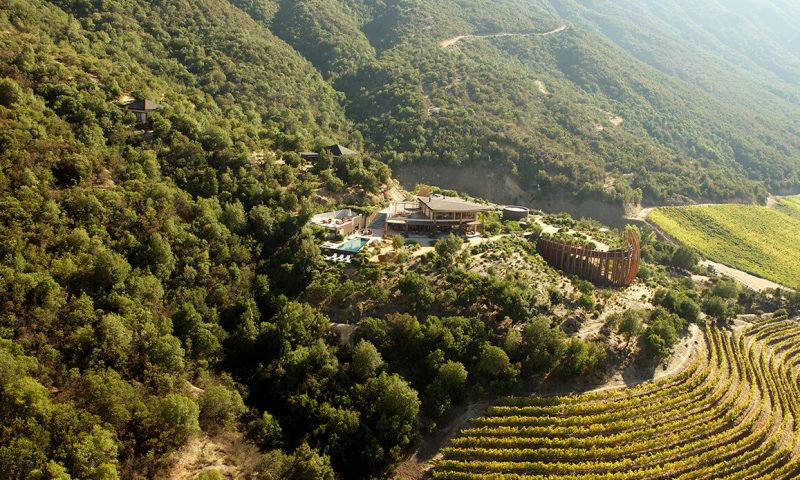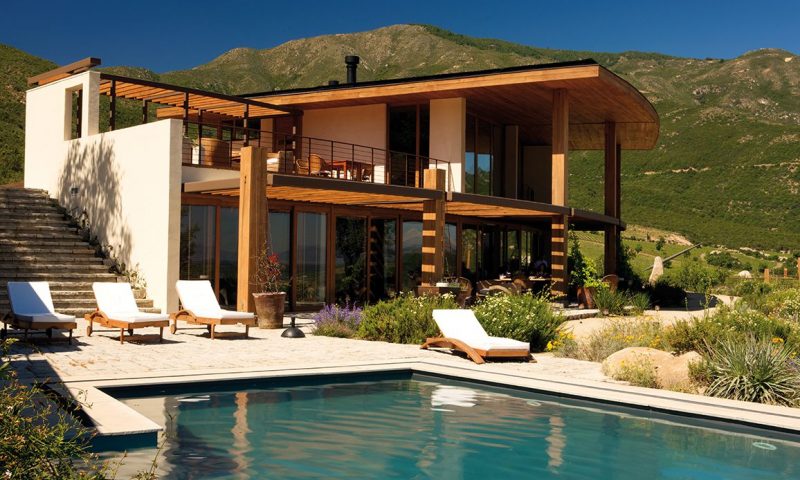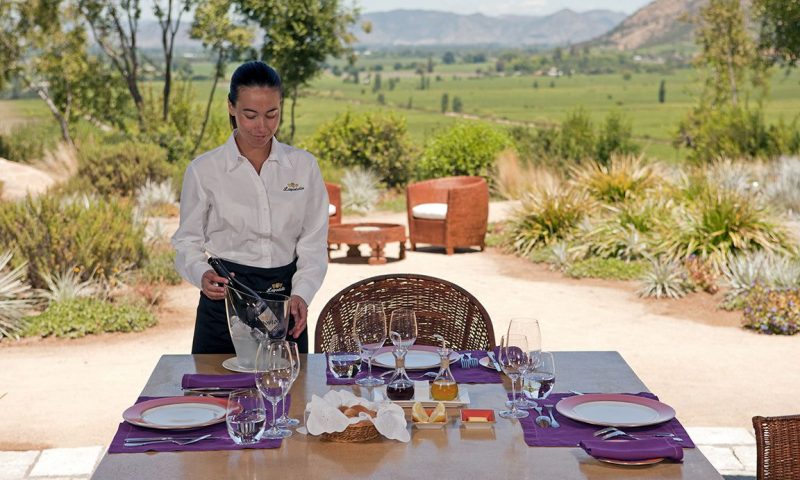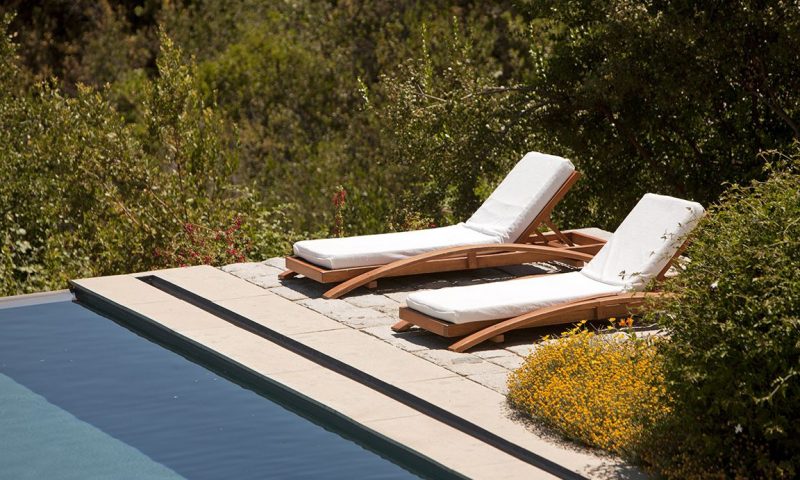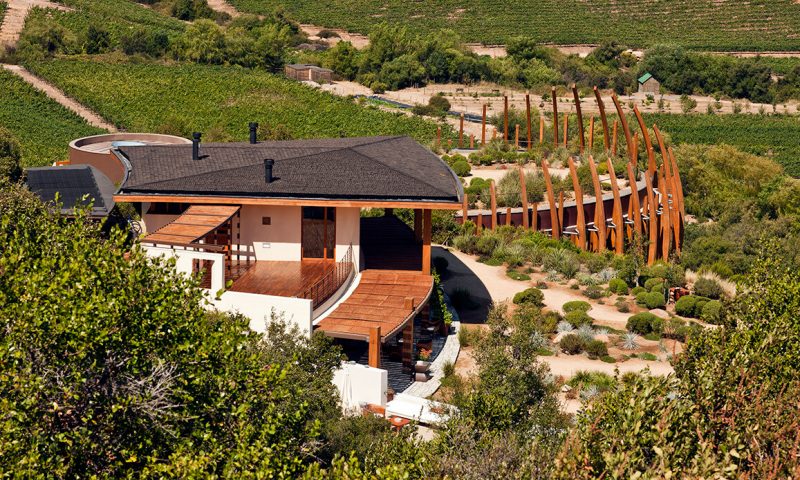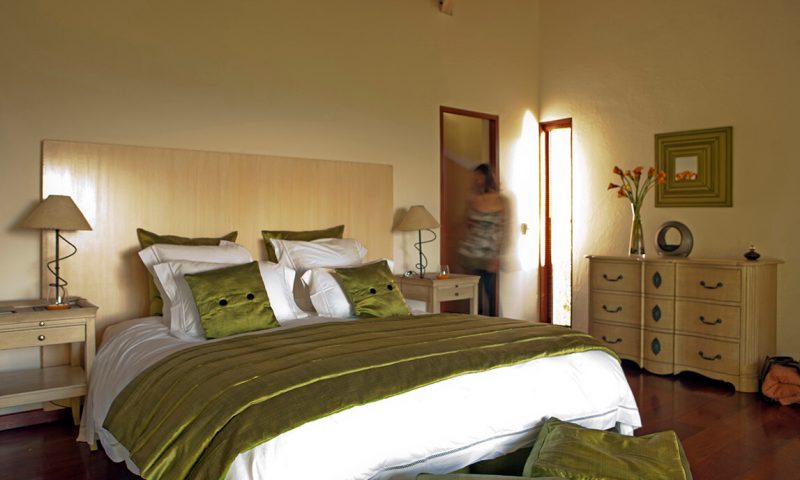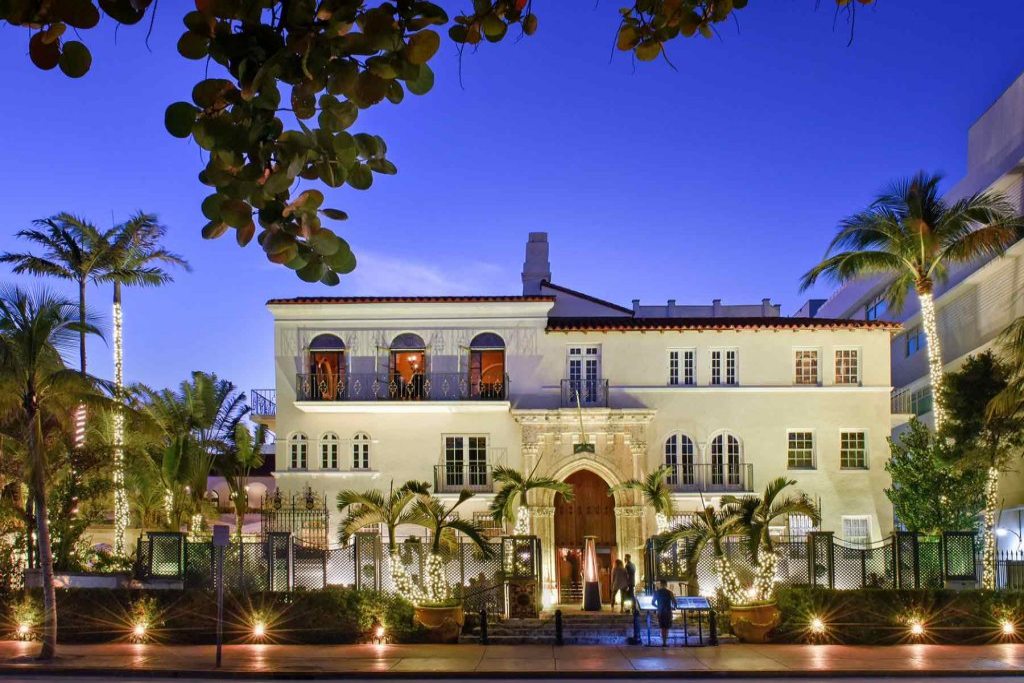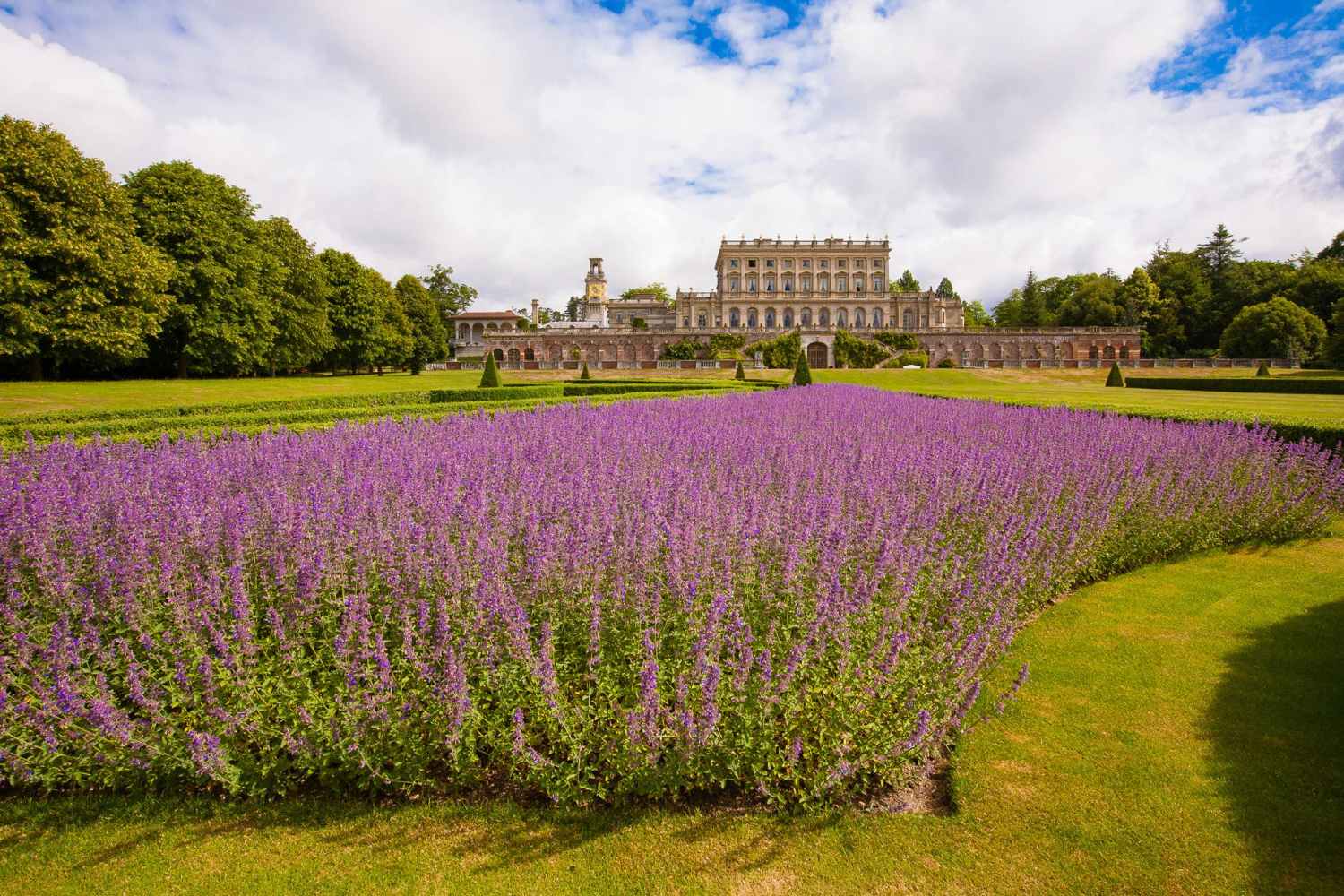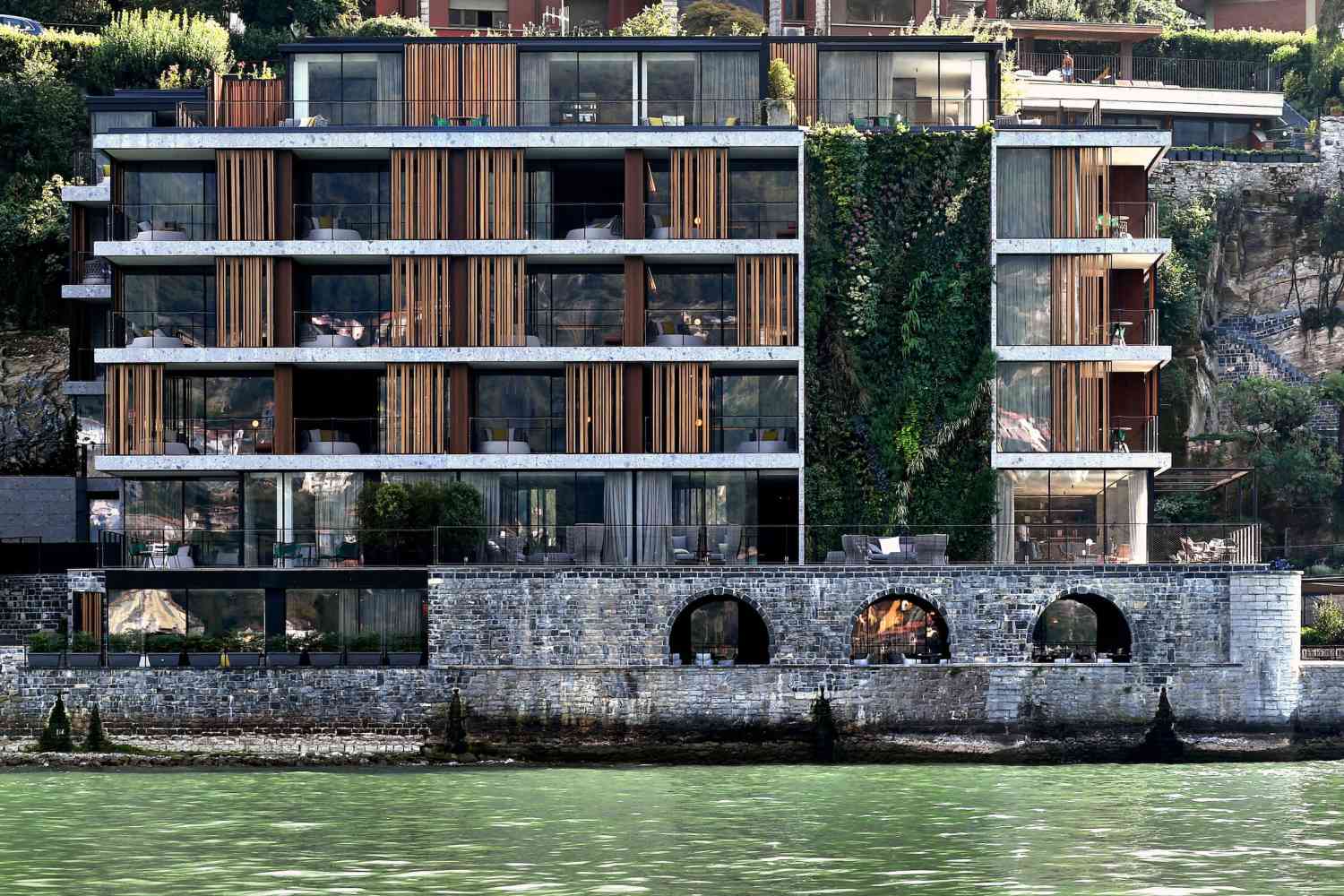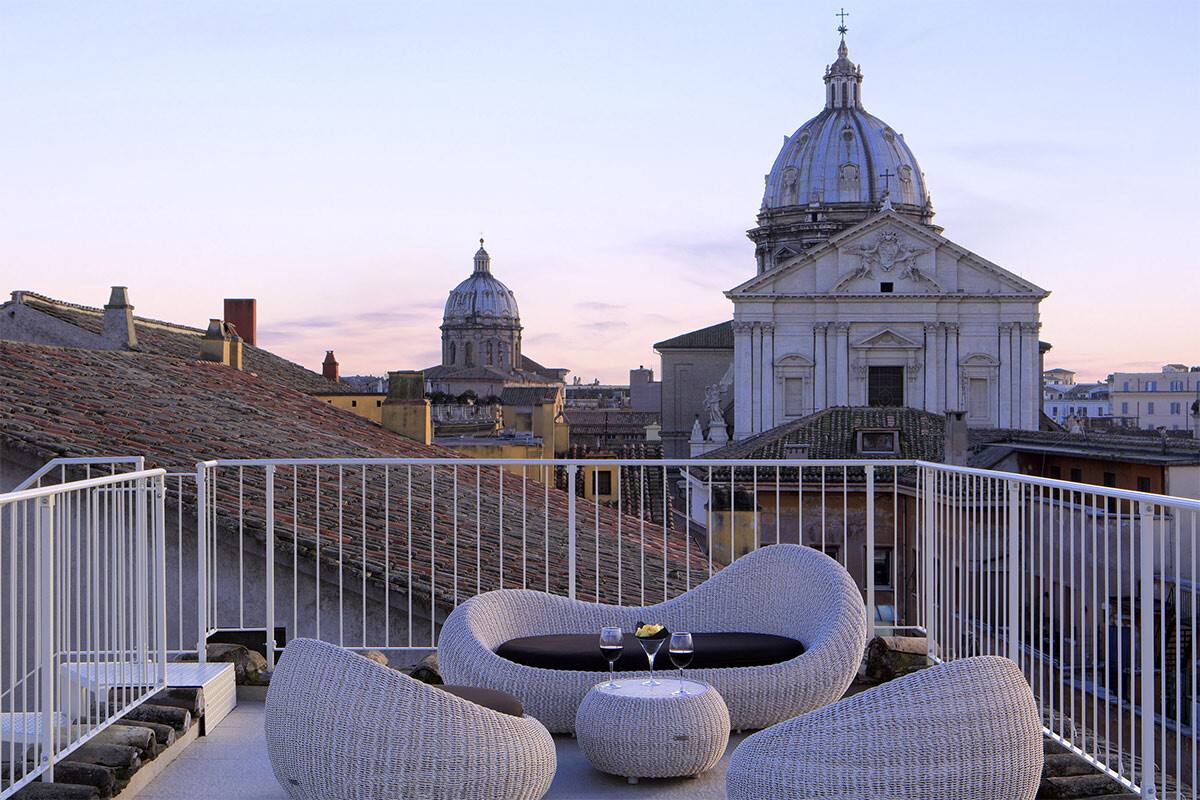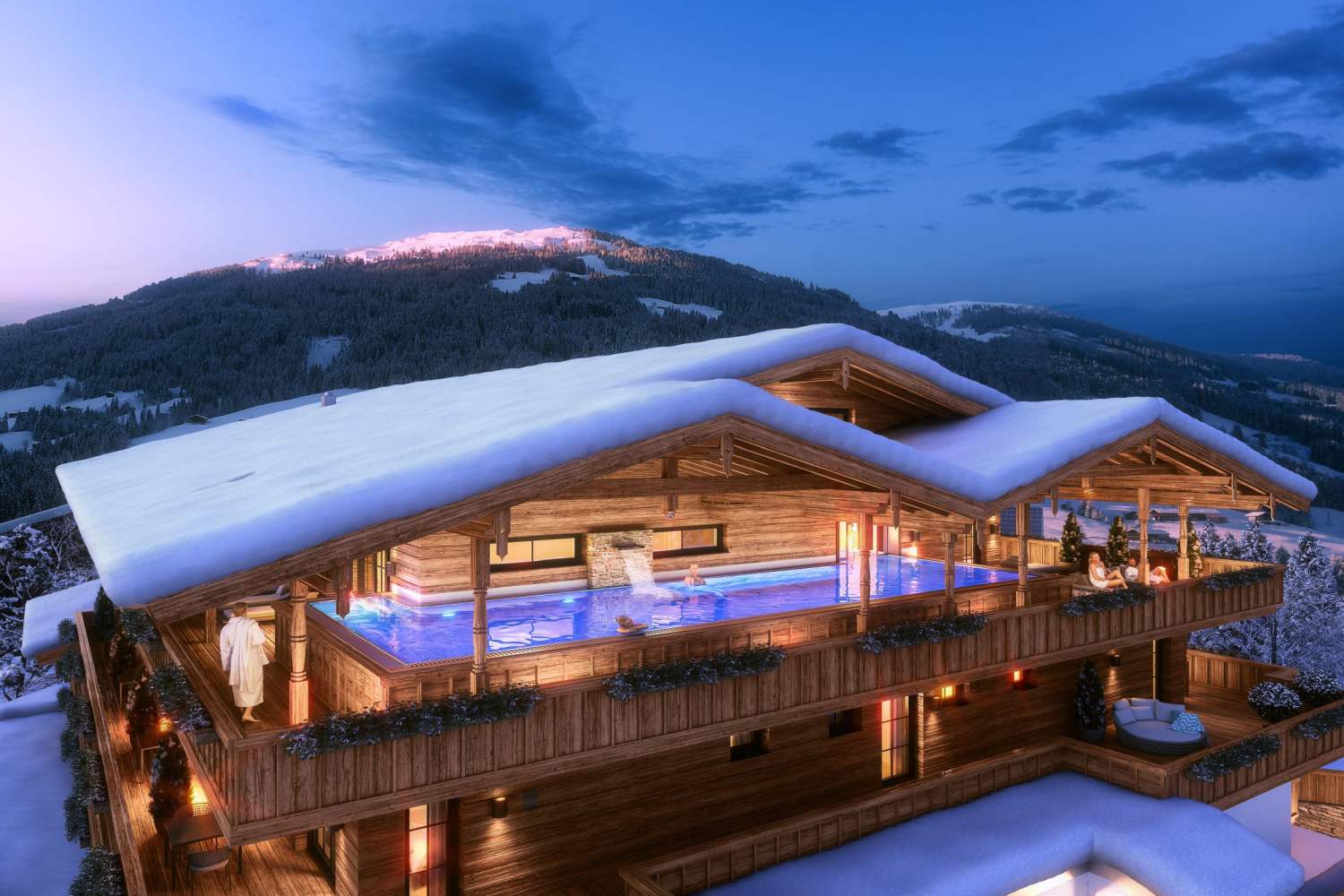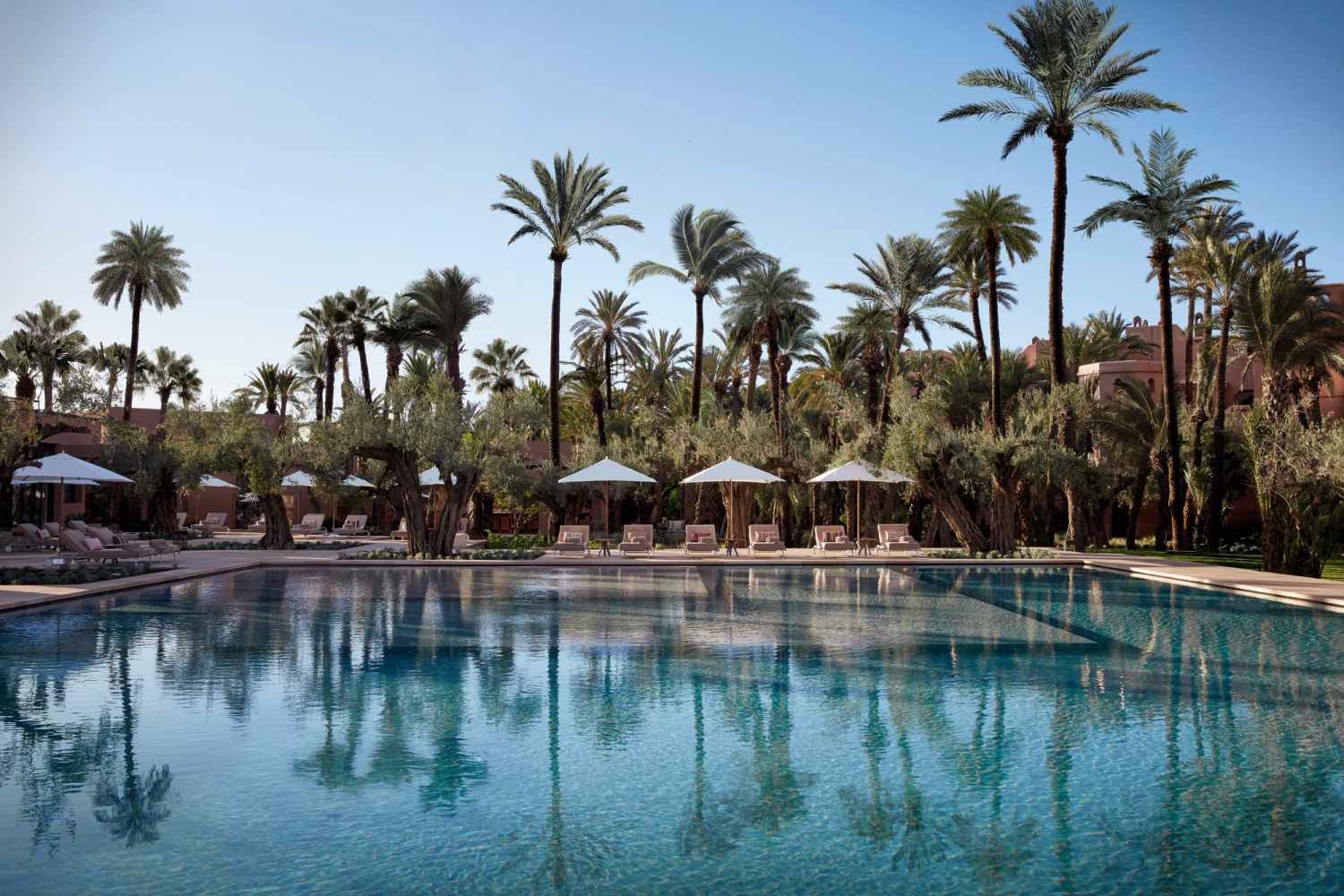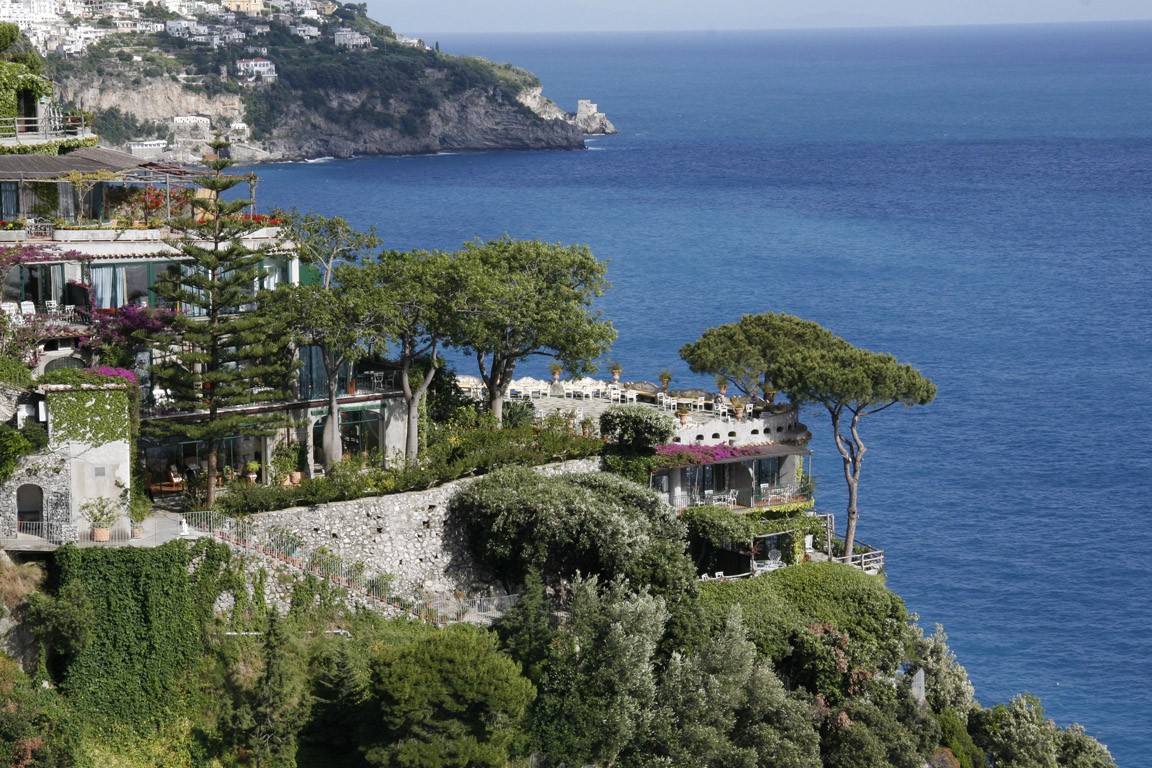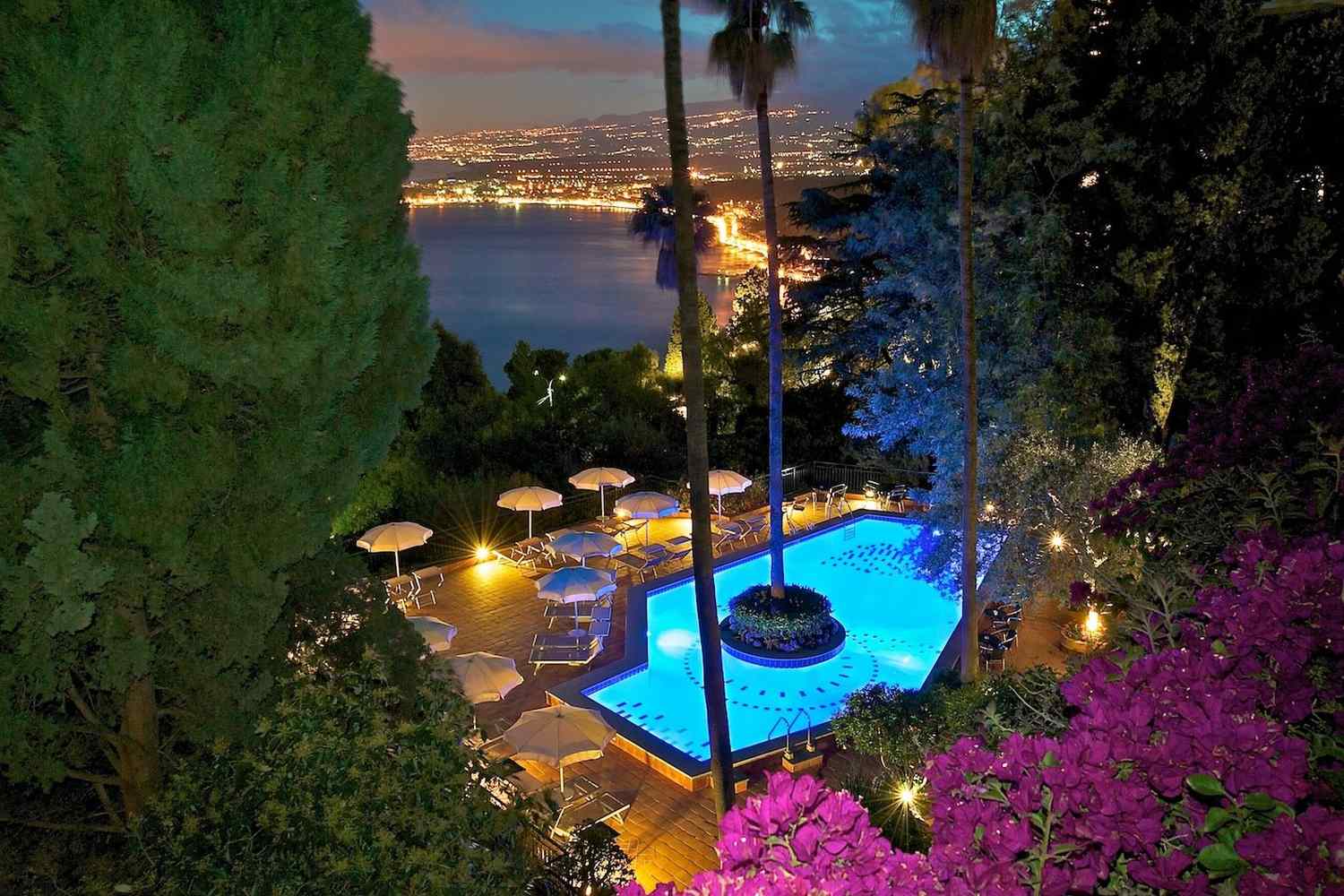In tune with our wine, our private residence has the same requirement for quality and elegance. Each of the rooms at our establishment, admitted into Relais & Châteaux since 2011, offers a breathtaking view of the Apalta vineyards and surrounding mountains.
From the dawn light to the last fires of sunset, it is a haven of peace for guests in search of a sensually rich retreat. The Clos Apalta Residence houses a gourmet restaurant: the refined and beautiful cuisine of the rich terroir.
The tasting room, equipped with state-of-the-art equipment, can also be used for conferences and seminars. Hedonists from all over the world meet to share their passion for wine
Rooms
There are only four luxury casitas in this nature reserve, each with luxurious comforts, nestled on the hillside in the Valley forest. Equipped with private terraces and gardens, the spacious suites (90 m2), allow you to taste the serenity of the decor, as well as the intimate meals.
So many sounds permeate the landscape that, with large bay windows, you can allow the outside to penetrate and refresh your senses. The glass walls allow the light to refract and play differently according to the seasons.
The simplicity of the architectural lines is compensated for by the refinement of rich and luxurious materials (natural silk, leather and indigenous wood). Since the vineyard is an old occupant here, each casita bears the name of an emblematic varietal.
The first one, Petit Verdot, with its shimmering hues, recalls the intensity and dynamism of this wine. The second, Merlot, like a romantic setting, mixes tart and pastel tones. The third, Cabernet Sauvignon, has clean furniture made of natural wood and is punctuated with olive green touches.
Finally, the elegant Carmenère suite, with shades of turquoise and brown, is located on the highest summit of the vineyard. In order to retain the magic of the place, guests can enjoy a massage in their rooms or a sunbathing session on one of the loungers set up around the infinity pool.
Large wicker sofas invite you to relax, with only the soft murmurs of the mountain wind and the gentle lapping of the swimming pool to keep you company.
Cabernet Sauvignon
Matures one to two weeks after Merlot, giving small bays resulting in a dark, powerful and tannic wine. Cabernet Sauvignon gives the wine its structure and strength. It is a vine, which gives a deep, intense color to the blend.
In the mouth, tannins are very present with aromas of black fruit like black currant, licorice, Raspberry, spicy notes and then, with time, black plum and fineness. It provides a great guard; aging potential. After a few years of cellar, it will reveal all its complexity.
Carmenère
Carmenere gives wines very colorful, shimmering purple tint, is very rich, tannic with a great aromatic persistence, fruity and spicy. It adds shine, roundness and character when it is assembled in other varieties.
Fit for aging, it can be vinified alone, but goes remarkably well with the Merlot and Cabernet Sauvignon. Carmenere offers aromas of black fruits, smoke, cocoa, leather and tobacco.
A cuisine based on the land
Based around the land, our refined cuisine exalts the natural flavors of Chile; it uses fresh vegetables and herbs from the house vegetable garden, but also fresh products from the region. All of this is paired with the estate’s most beautiful vintage wine.
The four chefs have scoured the region in search of the best ingredients, ensuring the quality of their taste and suitable farming conditions. Delicacy and finesse, with a concentration on flavors, accuracy of the cooking and the energy of the ingredients delight the taste buds.
Experience
For the most relaxing moments, you can enjoy the swimming pool in summer and massages in the privacy of your casita. The view presents a fabulous way of admiring the wild beauty of the landscapes. The Residence also boasts wellness experts, who come to teach yoga classes and reunite body with mind.
Adventure
There are many wineries in the region. Tours are especially designed for those who are both beginning their journey in the world of wine, as well as for those who are fanatics.
By visiting the Clos Apalta winery and those surrounding it, you will discover the secrets of the Colchagua Valley, which gives birth to the best nectars of Chile.
Exploring nature is another possibility: in this vast 650+ hectare estate, you can explore the organic and biodynamic vineyards via horseback, mountain biking, or hiking the wild wooded Apalta slopes. Finally, the city of Santa Cruz offers the opportunity to visit many typical craft shops and the Colchagua Museum.
The Charm of the Apalta Valley
It is rare for a place to be able to captivate a person so immediately, with so much force. It was 1994. After months of research, Alexandra Marnier Lapostolle and her husband, Cyril de Bournet, discovered the Apalta Valley.
A fine, golden light embraced the vineyard whilst hundred-year old-vines stood, intertwining majestically. Harmony had taken residence here. Alexandra Marnier Lapostolle knew that Clos Apalta could bring about the joyful encapsulation of this breathtaking landscape.
Jacques Begarie, Clos Apalta Technical Director since 2004, also describes the subtle beauties of the location, Clos Apalta wakes up and then radiates. An alchemy of lights, of smells – aromas of wild thyme and rosemary – of shrubby vegetation and rows of olive trees.
In the distance, the Andes mountain range stands, breathtaking with its constantly snowy caps. In the autumn it is an equally captivating scene, with the vineyard offering an infinite palette of colours; from the yellow merlots to the carmine of the Carménère grapes.
The blue of the sky returns and the dust vanishes, washed away by the rains. Over the tip of the mountain, the sun approaches. In the sky, high above us, condors swoop and dive whilst some foxes stand guard. Later on, the star-studded, indigo Milky Way fills the sky over the cellar.
Sustainability, a virtuous circle philosophy
As the terroir is a living matter, Clos Apalta has opened up to organics in the gentlest possible way. From then on, helping to preserve the natural and pure feel of the different terroirs became an absolute priority. The vineyard receives the best care possible.
Our organic vision is to protect not only the purity of the fruit in our wines, but also the purity of our environment and the people who work in our vineyards. Inspired by our experience in biodynamic vineyard management, we allow the terroir and wines to truly work in harmony with each other.
The area becomes self-sufficient: soil, plants, people and wildlife interact in a closed and autonomous system.
A genuine approach to organics
Taking the natural environment into account, the estate gradually converted to organics by isolating a few plots. It was a decision based on careful thought rather than technology.
Certified as organic since 2009, Clos Apalta now organically farms its 60 hectares, with particular attention to the soil which promotes deep rooting of the vines.
Utmost respect for raw materials
As part of a holistic vision for the living landscape, cultural practices help the vine to grow (tillage, plowing, smoking, compost) and to strengthen its defenses.
Whilst the method is in itself not revolutionary, the implementation of the appropriate organization is surprisingly uncommon in the southern hemisphere.
Recycling
Compost, essential to the health of our vines and to maintain the life of the soil, is made from the vegetable residues of our vineyards.
Biodiversity
We are committed to protect 1,000 acres of native Chilean vegetation in the hills of our vineyard and increasing biodiversity in buffer zones. Vegetation in streams and cover crops attract beneficial insects.
Team awareness
Committing an entire area to biological methods has meant that teams have had to be involved in the whole process and that the organization of work needed to be rethought.
We showed the workers how to be attentive to their vines and taught them the link between respect for the plant and the quality of the grapes produced.
A perennial vineyard
Is there a better example of a harmonious approach to the future than our system of taking care of the vine? Our cultural practices are in keeping with the natural balance and biodiversity of the environment.
As in “cuisine”, the fundamental element is the raw material. We extract from the grapes what they want to give us. If it does not taste good in the vineyards, there will be no miracle in the cellar.
Legacy and Passion
Numerous generations have dedicated themselves to the production of high-quality spirits and wines in honor of the founder, Jean-Baptiste Lapostolle.
As the Bournet Lapostolle family, we pass the baton onto the next generation, thus cultivating both a rich and a moral heritage. In order to understand this family tradition, here are a number of previous testimonies. At Bournet-Lapostolle, winegrowers are storytellers.
Jean-Baptiste Lapostolle, founding father
The story began in 1827, when Jean-Baptiste Lapostolle founded a fruit liqueur distillery in Neauphle-le-château, near Versailles.
Fifty-three years later, his granddaughter’s husband, Louis-Alexandre Marnier, from a family of Sancerre wine merchants, was captivated by the Cognac region and its brandy. Thus, the Lapostolle dynasty was launched.
Louis-Alexandre Marnier Lapostolle, inspirational creator
In 1880, Louis-Alexandre Marnier Lapostolle imagined a drink based on cognac and a rare variety of bitter oranges, which were then a luxury commodity.
As he tasted the creation, famous hotelier César Ritz named it ‘Grand Marnier’: “A great name for a great liqueur.” Since then, its success has not wavered: Grand Marnier remains the most exported French liqueur.
Alexandra Marnier Lapostolle, tireless perfectionist
A century passes. In 1994, Alexandra Marnier Lapostolle, great-granddaughter of the creator, embarked on a new adventure in Chile.
True to the demands of the family, her ambition was to produce an exceptional wine and to pave the way for the qualitative development of the country’s wines. In just a few years, Alexandra Marnier-Lapostolle succeeded in making Clos Apalta an iconic wine by shaping this vineyard, foot by foot.
Charles-Henri de Bournet Marnier Lapostolle, guardian and renovator
Today, another person who is equally as passionate for wine has taken over. Since 2013, he has been at the helm of the company, and the seventh representative of the dynasty brings new ideas and a new dynamism to the table.
He is accompanied by Jacques Begarie, technical director, and the famous consultant Michel Rolland, who is personally involved in all Clos Apalta production.
Climate
Clos Apalta has a micro-climate which is significantly distinct from the general climate of Chile. It could be called semi-Mediterranean, with winter rains and a long, dry summer; weather conditions that allow the grapes to reach optimum maturity.
The extreme thermal oscillation favors the accumulation of anthocyanins which creates the deep, rich color of the wines.
Exposure
The vineyard is located at the entrance of the Apalta Valley, with its 60 hectares laid amphitheatrically. It enjoys a mostly southeast exposure, quite rare in Colchagua, which limits the sunshine and protects the old vines planted in poor granite soils from extreme heat.
The Tinguiririca River and the hills of the Andean precordillera, enclosing the vineyard, ensure that our vines receive a balanced exposure to the elements: at sunset, the foothills protect the grapes from the rays of the sun and prevent scalding and dehydration at the hottest time of the day.
Vineyard age
The oldest plots were planted between 1915 and 1920; the stocks were imported from France at the end of the 19th century. A unique, century-old vineyard with 40 hectares of pied franc, with vines averaging 80-years-old.
The carménère and cabernet, with their high-quality phenols, give superb and succulent grapes. A unique terroir where the 100-year-old vines blend harmoniously into the surrounding nature.
Vineyard configuration
From the beginning of this journey, we have striven for perfection. During project development, other stocks were planted beside the old vines, according to the best layout which was discovered first in Chile.
This includes foothill plantations with a high density of 6600 plants per hectare and constrained yields with a production of 45hl/ha, equivalent to that of Bordeaux. Today, the carménère is the make-up of wines such as Merlot, Cabernet sauvignon and Petit Verdot.
Soil type
The quality of the Apalta terroir is largely linked to the clay and structural quality of the soil, which is enhanced by the presence of both a weathered and fragmented bedrock and the natural properties of the quartz granite soils.
Soil variation within the valley is important: from deep, organic, brown granitic soil to shallow, clay granitic soils on bedrock, to quartz granitic soils.
Water supply
Because of the presence of weathering clays, Apalta benefits from a naturally created water reservoir that allows the vines to survive without human intervention.
Height difference
In order to obtain as large a variety of wine as possible, some varietals are planted on the foothills, whilst others are on flat slopes, between 150 and 300 meters. These differences in altitude work together to offer beautiful, unique wines when assembled.
A mosaic of terroirs
Clos Apalta is an exceptionally composite terroir, with a myriad of plots, presenting an almost complete sample of the local rock make-up. The multitude of terroirs allows for contrasting flavors, thanks to the wide variety of soils, and gives the wines an aromatic complexity.
The Cellar, a Monumental Work
High standards meant that from the first vintage years, Alexandra Marnier Lapostolle understood the necessity of a cellar exclusively dedicated to Clos Apalta.
The renowned Chilean architect, Roberto Benavente Riquelme, was asked to design a building with an ambitious and unique infrastructure, harmoniously integrated into the existing landscape.
Used for refining the wines, this cellar was designed to cater for the complexity of Clos Apalta’s terroirs. For the first time, an architectural masterpiece became a dwelling place for the Chilean wine.
An architectural feat
Soberly functional, yet aesthetically and conceptually grandiose, the cellar’s dazzling beauty does not meet the eye above the ground, instead, buried, it solemnly preserves a breathtaking mystery.
From reflection to realization, six years (1999-2005) were needed to give birth to this 4,600 square metre cellar, seven floors of which were excavated in the rock (35 meters deep).
Thousand-year old underground water lines were dug along in the hill and the immense wall of granite rocks has been preserved in order to collect the runoff. From the arrival of the grapes to their bottling, the visitors experience a vertical trip, imitating the downwards movement of water.
A spectacular cellar, unique in design, totally buried in the rock, the volumes of which are imperceptible from the outside. Nothing appears but huge wooden slats depicting the splinters of an open-air barrel.
A decade later and going through the gate of Clos Apalta’s cellar still causes the same shock! It remains an essential stop on the Chilean circuit.
Allegory of the surrounding nature
The large rocks, found on-site, were converted into tiles and placed in every part of the cellar to reaffirm this link with nature. A glass tasting table, engraved with the etching of natural granite rocks, opens on to two stairs that lead to the wine library, the Bournet Lapostolle family’s personal cellar.
The twenty-four wooden beams, resembling a conch, stand towards the sky; they show the number of months necessary for the production of Clos Apalta wine.
The sundial on the roof is made up of five granite stones, which are an allegory of the vegetative cycle of the vine: bud break, flowering, fruit set, veraison and maturity. The shadow cast by each stone corresponds to a stage of the vineyard’s evolution.
In praise of gravity
We preserve the wines from all unnecessary mechanization: the grapes enter the fermentation vats, arranged in a picturesque circle.
Below, a barrel cellar ensures ageing, before assembly and transfer to the lower level for an additional year of maturing. At the lowest level is the Vinotheque, where the bottles age slowly between granite blocks.
By its succession of descending floors, this cellar is 100% gravitational. From the reception of the grapes to bottling, no winemaking operation takes place; no pumping, no mechanical stress. A perfectly adapted working tool.
Nearest to the terroir
The twenty-one vats each able to hold 75-hectoliters (1 hectare and a half), adapted to the different varietals and terroirs, makes it possible to maintain the individual expression of each wine and allows a more accurate parcel vinification. In short, it is a skilful way of creating infinite varieties of wine.
Le Petit Clos
Delicately, the wine swirls in the glass; its shimmering cherry dress billows gracefully against the fine crystal. All you have to do is smell it to appreciate it… strong aromas of blackcurrant, cherry and slightly spicy tobacco.
A balanced texture with silky tannins, it rolls around the tongue and nestles under it for a few seconds, leaving a sweet and fragrant memory. You have experienced its intimacy and true personality.
Clos Apalta
A glass of Clos Apalta opens the doors to a dream. Just retreat into yourself and listen to what it has to offer you.
First of all, there is a kind of poetry to its colors, like an iridescent indigo dress with carmine reflections in its folds, then the texture, soft as a summer evening, and lastly, its bouquet; a cascade of aromas, black cherry, blackberry, leather, spices, mocha and cocoa…
Take a deep breath and let the smell send shivers down your spine. Then, let yourself be carried away by the fine elegance of its tannins. In this way, slowly, Clos Apalta tells you its history, its terroir, its varietals and its education.
Clos Apalta knows what it is impressing on you – an emotional outburst and sensual vibrations which make sure it is never forgotten.
